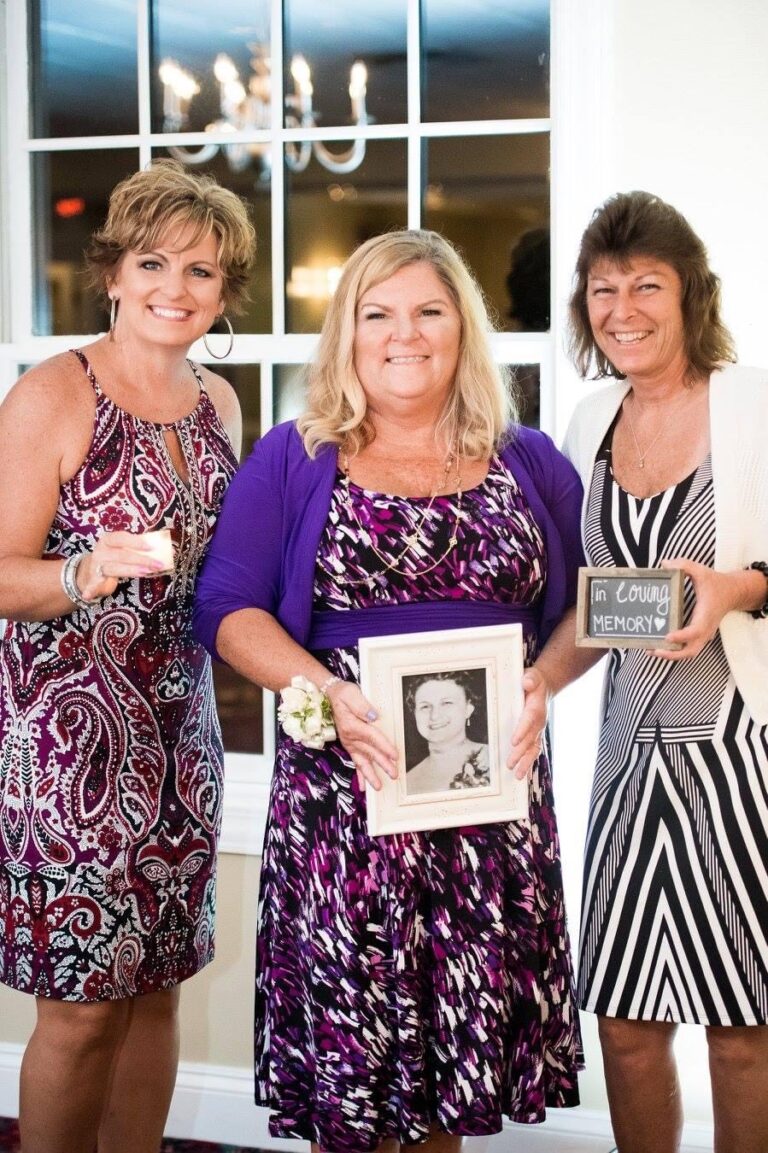The Generational Impact of ALS: The Importance of Advance Planning
Written by: Laura Taxel
June 23, 2023
Brandy Gleason’s mother, Nannette Livingston, passed away in 2019 at 56. The cause of death was ALS, amyotrophic lateral sclerosis. The same disease took Brandy’s grandmother and great-grandfather. Often called Lou Gehrig’s Disease in memory of the famous New York Yankees baseball player whose career it ended in 1939, ALS is a progressive neurodegenerative disease that starts with muscle weakness and leads to loss of all motor function and ultimately complete paralysis. It is always fatal.
“This disease has been part of my life,” says Brandy, a social worker who lives and works in the Dayton, Ohio area. “I was seven years old when my grandmother got sick. I’ve seen firsthand what it looks like to be trapped in a body that is deteriorating day by day. Eventually, you can’t swallow or breathe. There is no treatment or cure.”
For people with ALS, it is not a question of learning to live with a disability or redefining what quality of life means. It is about gradually losing the ability to stay alive. “My grandmother suffered for three years after the initial onset of symptoms,” Brandy recounts. “By the time she died, she was completely bedridden and could only move one little finger and shift her eyes right to left to communicate. Her decline was traumatic for the whole family.”
Some members of Brandy’s family have a gene mutation associated with ALS. Each generation has a 50 percent chance of inheriting it, and those who do have a 97 percent chance of getting the disease. She has been tested, and so has her young son. Neither carries that genetic risk. Nonetheless, her personal experiences with this terrible, terminal illness have made her a longtime supporter of medical aid in dying (MAID).
“In the five months between her diagnosis and death, my mom, who had been an active, joyful, talkative woman, became sad, irritable, and angry,” says Brandy. “She was not the person I knew. It was terrible to witness.”
From the start, Nannette Livingston was adamant that she didn’t want to prolong her life with feeding or tracheostomy tubes. She was in constant pain, and as it increased, so did the amount of medication needed to manage it. “Home hospice workers kept her comfortable,” Brandy explains, “but that left her unconscious most of the time. She told me that she hated feeling out of it like that.”
When a move out of her home and into a hospice facility was imminent, Nannette decided to discontinue artificial breathing support. She asked that the machine keeping her lungs filled with air be removed, and she died 45 minutes later.

“Until medical science has something to offer them, ALS patients have a life without hope,” Brandy says. “Some want to fight every inch of the way. My mother did not. I respect each individual’s right to self-determination and the choices they make for themselves.” That’s why she believes MAID should become legal in Ohio. It’s not only something she’d like available for her brother or sister, who have not shown symptoms or been tested yet for the gene mutation but for others with ALS.
Recognizing that some object to medical aid in dying for religious reasons, she says, “I’m a Christian, and mine is God of love. I don’t believe He intends for us to suffer needlessly. My mother’s faith was very important to her, and she felt the same.”
In addition to the unique circumstance of her own situation, Brandy’s job as a hospital social worker has convinced her that every person should think about end-of-life issues and discuss their wishes with loved ones. “I know it’s hard to think about dying and even harder to talk about. Even so, you should prepare, have these difficult conversations, plan and make your desires clear. I see patients forced to undergo lifesaving interventions, whether they want them or not because others are making those decisions for them. I wouldn’t want that. It is scarier to me than dying.”
Since ALS is a part of Brandy’s story, she’s thought about death more than most people. It’s made her a passionate advocate for legalizing medical aid in dying in Ohio. “Everyone should have the option to manage the end of their lives as they see fit.”
